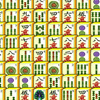Healthy Living Makes a Difference
The Bees Knees
Did you know that we rely on bees for nearly 1/3 of our entire food supply? Bees work to pollinate many important crops to provide us with nutrient-dense foods. They play a vital role in our environment, but also provide us with beneficial “bee products” such as honey, royal jelly, bee pollen and propolis; which have been used for years to increase stamina, fight infection and support health and vitality!
Honey – is most often used as a natural sweetener. Natural, unpasteurized/raw honey supplies a range of antioxidants (including flavonoids, phenolic acids, vitamin C, vitamin E compounds). The effects of these compounds can provide significant health benefits, however, the balance of nutrients in honey varies with its origin and the plants from which it was made. Honey is also a reliable source of trace nutrients such as vitamins, minerals, enzymes, and amino acids (including tryptophan). In fact, raw honey is said to be so rich in enzymes that it’s the only food on the planet that never goes bad! Honey has been acknowledged for its value in soothing irritated throat membranes as it has the ability to form a soothing coating. Note: Consume honey raw as much as possible because the heating process destroys the enzymes and nutrients that make it a superfood!
Manuka honey, specifically, has special properties that do not exist in other honeys. Manuka grows wild and naturally in New Zealand. This honey has superior anti-inflammatory, antibacterial/fungal/viral, antioxidant-rich benefits and is full of beneficial enzymes. It is used both internally and externally for digestive and oral health, skin conditions and wound healing!
Royal Jelly – is a milky substance secreted from the glands of worker bees and fed to all larvae in the colony and the queen bee, who lives almost exclusively off royal jelly as her source of nourishment. This enables her to outlive her worker bees 30-40 fold! She is incredibly productive, laying up to 2000 eggs per day throughout her life. Royal jelly is said to be the richest source of vitamin B5, which is known as the “anti-stress” vitamin. It is composed of protein, fatty acids, amino acids and is a source of the neurotransmitter, acetylcholine, used to help promote memory and mental sharpness. This substance also has anti-inflammatory properties! Claimed to have a bitter taste, it is best enjoyed in combination with raw honey as a spread.
Bee Pollen -is a collection of little yellow granules that bees gather from flowering plants that serves as a powerful source of amino acids, enzymes, plenty of vitamins (i.e. B’s) and minerals as well as fatty acids! It contains 25% protein and has more protein per gram than any animal product. It is considered an incredibly nourishing, easily digested and low calorie food (90 calories per ounce/2 tbsps.) Bee pollen has a positive effect on a number of body systems including the nervous, immune, and respiratory systems. It is also rich in rutin, a phytonutrient that helps support the resistance of capillary walls as well as help control hypertension by regulating blood flow and soothing the nervous system. Athletes often use it to increase energy, endurance and muscle recovery, while others take it to ward off colds and some simply use it as a superior source of protein! Another benefit of pollen is its ability to help protect against the adverse effects of radiation. Interestingly, it has been known to be highly effective at combating seasonal allergies, by helping fight like with like! It can be taken in capsule or food form on salad, in yogurt, or in a smoothie.
Bee Propolis – is a “glue-like” substance that bees collect from the resin of trees and plants to hold the hive together. Bees use it as a natural antibiotic to protect, re-inforce and sterilize their hive, sealing it from invaders and defending them against disease, as a decontaminant. Propolis contains most vitamins, minerals (such as magnesium, calcium, phosphorous and potassium) and roughly 500x more flavonoids than oranges! It also holds a variety of healing benefits. It provides powerful but gentle protection against superbugs, increased pollution, environmental degradation and compromised health. Propolis has well-documented antibacterial, antiviral, antifungal, antiseptic activity and in some parts of the world, it has been regarded as the “nature’s antibiotic”. Interestingly, it has no known toxic side effects and does not destroy good bacteria with the bad. Propolis is great to use as a preventative and works to protect and boost the immune system. People have reported that propolis strengthens immunity and helps reduce cold symptoms as well as speed healing of skin irritations. The compounds in bee propolis also offer anti-inflammatory action to help with conditions such as arthritis, allergies and asthma. This ingredient can be found in tablet, capsule, powder or extract. Propolis is said to have a stronger taste than honey, but still retains its natural “sweetness”. It can also be used topically as an antibiotic.
In recent years there has been a drastic increase in the disappearance of honey bee colonies in North America (approximately 25-30% of colonies dying yearly). This phenomenon has been called Colony Collapse Disorder. There is a similar phenomenon occurring with bumble bees.
According to the Canadian Honey Council, “Honey bees are important pollinators of agricultural food crops and vital to our food supply. In Canada it is estimated that the value of honey bees to agriculture is $1.3 billion. All pollinators including honey bees in particular have suffered serious losses that are unsustainable. We need your help to save our pollinators.”
The Canadian Bee Research Fund is a charity that is a joint project of the Canadian Honey Council and the Canadian Association of Professional Apiculturists that provides funding for bee research in Canada.




